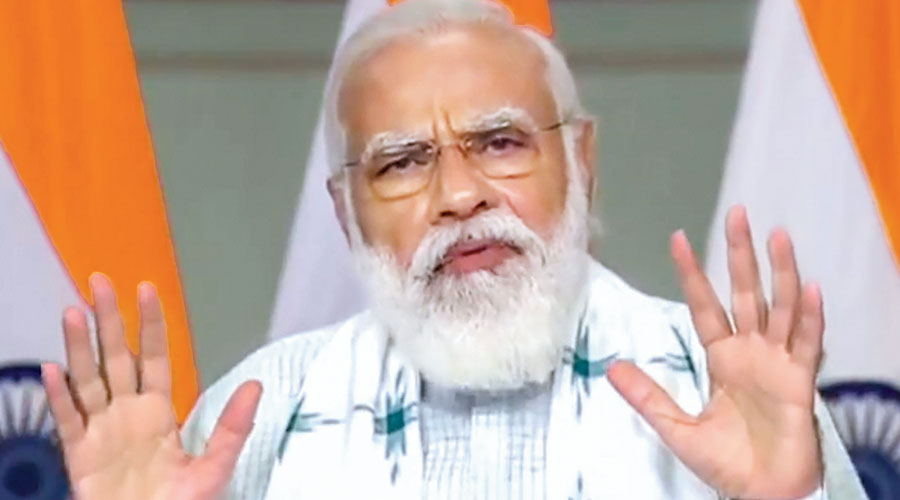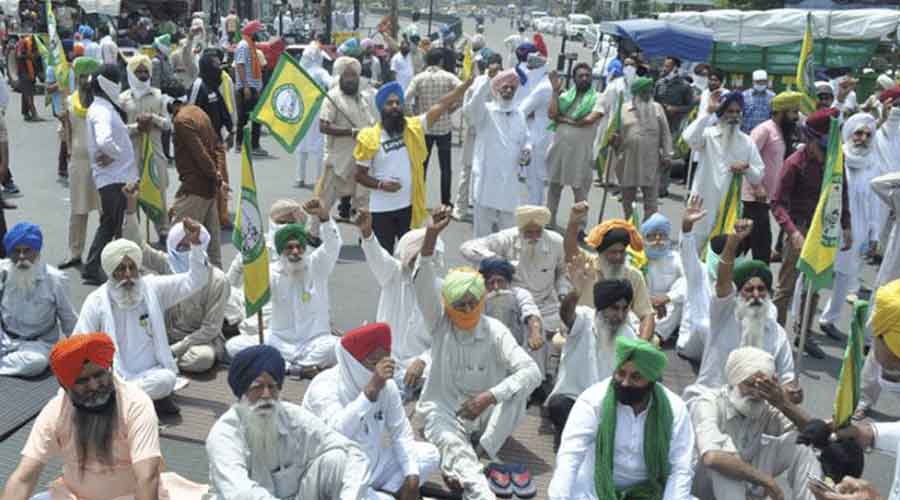The lone farmer representative on the Supreme Court-appointed committee on the now-repealed farm laws on Monday released the year-old report favouring the “reforms” on the premise that it can still play an educational role and inform future policy decisions in agriculture.
Anil Ghanwat of the Maharashtra-based Shetkari Sanghatana unveiled the report at a media conference in Delhi after sending another letter to the Chief Justice of India — his fourth since the report was submitted to the court on March 19 last year — informing him of his decision to place it in the public domain.
On the timing of his decision to release the report – given that it is favourable to the government and could be used to resurrect the farm laws — Ghanwat said he had deliberately waited for the Assembly elections to be wrapped up to avoid influencing them in any way.
According to the committee’s recommendations, which were submitted long before the Narendra Modi government retreated on the laws, a repeal or prolonged suspension of the laws would have been unfair to the “silent majority” of farmers who it said supported the laws.
Since the Samyukta Kisan Morcha (SKM) — the collective of farm unions from across the country that spearheaded the yearlong agitation — refused to have anything to do with the committee, the majority of the views it received favoured the laws.
Asked if he feared charges of contempt of court for releasing the report on his own, Ghanwat said the court had not explicitly asked the committee to keep it under wraps. “In any case, I’m doing this for the larger good of the farming community,” he said.
In his letter to the CJI on Monday, Ghanwat said: “As the only farmer and farmers’ representative on the three-person committee, I was being repeatedly asked questions by farmers and their organisations, so I wrote to the Supreme Court on 1 September 2021, requesting that the report be released.”
He made similar requests thrice in the following months.
Asked why he was doing this alone if there was no directive from the court to keep the report secret, Ghanwat said the other two committee members — Ashok Gulati and Pramod Joshi — were agriculture economists and not activists.
“I am an activist and so I am taking this initiative because I believe the report explains in detail why the farm laws are beneficial to the farmer,” Ghanwat said.
About the laws themselves, the report includes a view that the committee received: that the haste in which they had been brought in created a trust deficit and triggered doubts about their merits. The laws were introduced through the ordinance route and then rammed through Parliament with very little debate.
In deference to the view from various state governments that the laws were an attack on the federal structure as agriculture is a state subject, the committee has recommended that the states be allowed some flexibility in the implementation and design of the laws with prior approval from the Centre.
The committee has called for an alternative mechanism for dispute settlement via civil courts or an arbitration mechanism such as farmer courts, something the government had agreed to in the early days of the agitation when it was negotiating with the protesting farmer unions.
On minimum support prices, the committee says the procurement support policy, designed for cereals during the Green Revolution, needs to be revisited.
“For wheat and rice, there has to be a cap on procurement which is commensurate to the needs of the Public Distribution System (PDS). The savings from this capping on wheat and rice procurement may be utilised to enhance prize stabilisation fund for other commodities such as nutri-cereals, pulses, oilseeds and even onion and potatoes on open market principles.”
The procurement of crops at a declared MSP can be the prerogative of the states in line with their specific agricultural policy priorities, the committee has recommended.
It has added that these states can provide a legal backing for such procurements at their own cost, like the recent Punjab amendment act.
The SKM has been pressing for a law guaranteeing MSPs, maintaining that it does not expect the government to procure every grain farmers produce at the prescribed price and that it just wants a law to ensure that no one buys below the price fixed by the government.











